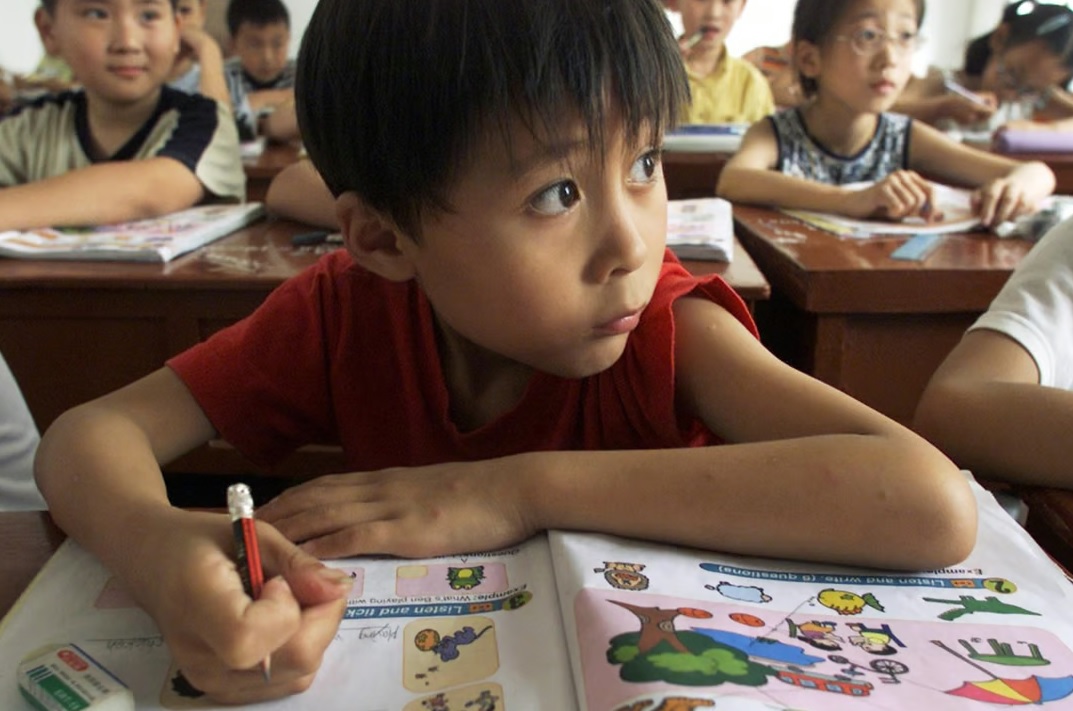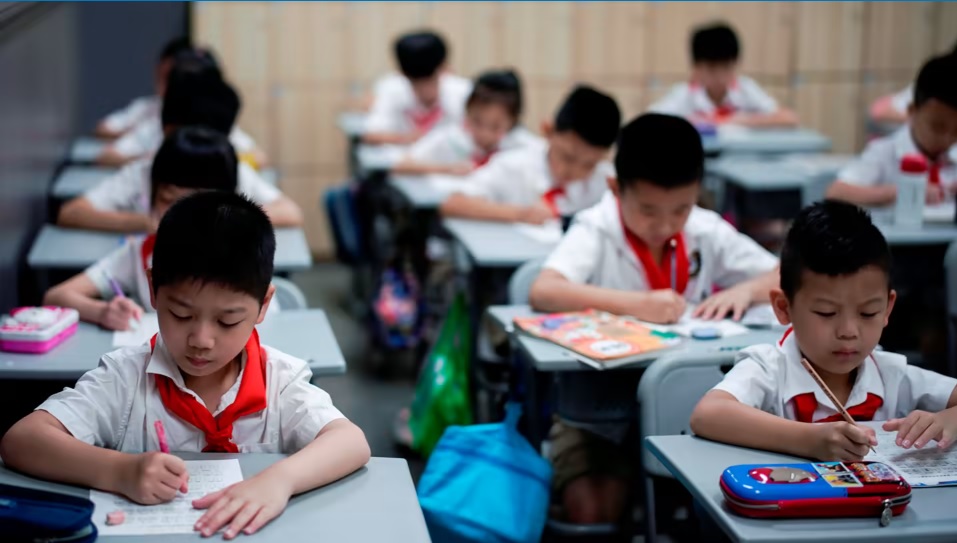Preschooleducation is divided by age and the 5-6 year old stage is often called "pre-primary school" (in Vietnam, it is called the Leaf class). During this stage, the curriculum framework from Western to Eastern countries has a common feature of developing "school readiness".
Unlike Western countries, Asian preschool children in Vietnam and China face a lot of pressure, especially having to learn the first grade curriculum in advance. Experts and teachers say that the pressure comes from the requirements of the first grade curriculum framework, leaving parents with no other choice but to send their children to extra classes.
Chinese parents put pressure on their children
Over the years, the Chinese Ministry of Education has changed its policies many times, constantly updating regulations, emphasizing that preschool education only focuses on developing skills, learning through play, stimulating creativity, discovery , and not putting pressure on children in terms of knowledge. However, after school hours at preschool, many Chinese parents send their children to learn many things from foreign languages, musical instruments, drawing to writing, learning ahead of the first grade curriculum.

Chinese students in a foreign language class in Shanghai
According to regulations of the Chinese Ministry of Education, kindergarten teachers are not allowed to teach knowledge before first grade, but parents still come to ask for extra lessons or tutoring. "Parents are often upset by this regulation. Kindergarten teachers are not allowed to teach any knowledge in primary school, such as writing and math. However, the first grade curriculum requires students to have this knowledge and skills. So parents have to send their children to extra classes and tutor them at home," a teacher at a famous primary school in Shanghai, China, who asked not to be named, told Foreign Policy magazine.
A study by Beijing Normal University published in the international journal of public health IJERPH in 2022 showed that both parents and students suffer the greatest psychological pressure during the transition from kindergarten to primary school.
China Daily in 2019 cited a survey by the National Children's Research Center showing that more than 60% of Chinese children (aged 3-15) attend extra classes after school hours. Faced with this situation, the Chinese government issued a ban on extra classes in 2021, but the demand for extra classes from preschools has not decreased, according to China Daily . Tutors still "secretly teach" and tutoring centers "circumvent the law" by opening life skills classes. The Global Times (China) reported that in early 2022, at least two life skills centers in the capital Beijing were fined and forced to stop operating for organizing "secret tutoring" for preschool children.
Therefore, education expert Linyuan Guo-Brennan, who worked at the Chinese Ministry of Education before immigrating to Canada, recommends adjusting the curriculum framework to create a smooth connection between pre-primary and first grade. Ms. Linyuan said: "In Chinese kindergartens, teachers are not allowed to teach reading, writing or math, but must spend more time on developing social and emotional skills. However, entering first grade, students face academic pressure."

Both parents and students have to endure the greatest psychological pressure during the transition period from kindergarten to primary school.
Children in Australia learn gently from preschool to primary school.
In Western countries such as Australia, preschool environments are designed to be play-based to prepare children for the transition to primary school. In preschool, children learn basic social and emotional skills, such as sharing...
While Australian preschoolers are not required to have a certain level of “educational attainment” or “school readiness” before entering Year 1 like in Asian countries, they are still encouraged to have a basic understanding of the alphabet and numbers. However, this is not a prerequisite for primary school.
"During the transition to grade 1, my husband and I were not worried at all, and did not need to let our child learn the grade 1 curriculum in advance. In grade 1, our child was just learning to write, mostly combining simple words, remembering the rules of vowels and consonants, without having to practice writing, writing one word with many lines in a notebook," Ms. Thanh Nguyen, an Australian of Vietnamese origin whose child is in grade 2 in the capital Canberra (Australia), shared with Thanh Nien Newspaper reporter.
By the time she got to second grade, Thanh Nguyen's child was even misreading and mispronouncing many words. "Primary school students are evaluated based on percentages during their studies, not on grades. For example, if their English score is below 50%, the teacher will schedule a private meeting with the parents to discuss how to help their child improve. The teacher will instruct the parents to let their children read more sample sentences and short paragraphs at home, without having to take extra classes," Thanh Nguyen shared.
This partly shows the consistency of the curriculum framework between preschool and primary school, helping students not to be shocked or pressured during the transition period, avoiding the situation of learning the first grade curriculum ahead of schedule.
Source link




















































![[Maritime News] More than 80% of global container shipping capacity is in the hands of MSC and major shipping alliances](https://vphoto.vietnam.vn/thumb/402x226/vietnam/resource/IMAGE/2025/7/16/6b4d586c984b4cbf8c5680352b9eaeb0)













































Comment (0)